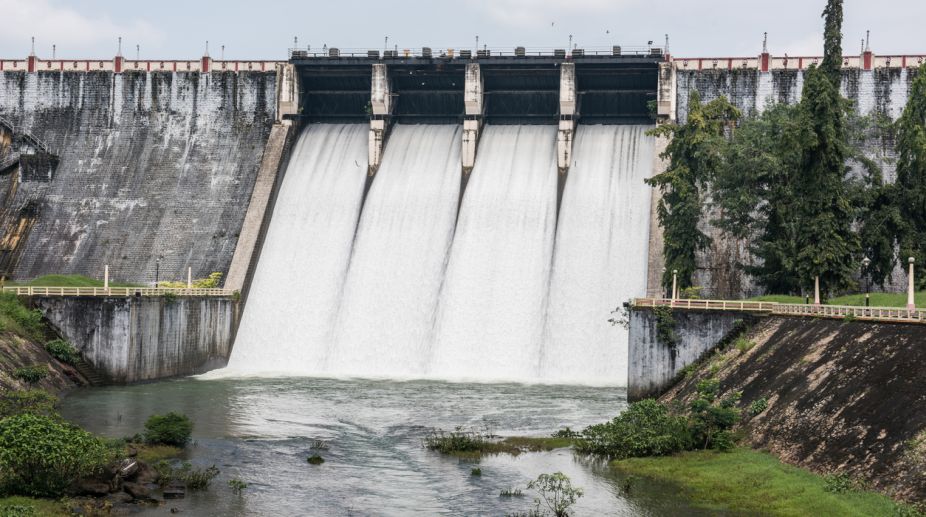Is the Nepal government gifting a hydropower project in Nepal that has a generation capacity of 669 megawatts to India? Probably, yes.
The 53rd meeting of the Investment Board Nepal chaired by Prime Minister Pushpa Kamal Dahal ‘Prachanda’ on Thursday evening approved an investment worth Rs 92.68 billion proposed by India’s state-owned Satluj Jal Vidyut Nigam (SJVN) to develop the 669 MW Lower Arun Hydroelectric Project.
Advertisement
This is the third project undertaken, all through negotiation windows, on the Arun river after the 900 MW Arun-III and 695 MW Arun-IV hydroelectricity projects. The investment cost of Arun III is $1.04 billion.
The SJVN is currently developing Arun III, another hydroelectric project in the same river basin. Nepal is also mulling to award Phukot Karnali Hydro Electric Project to India’s NHPC. The installed capacity of the project is 480 megawatts. Some other slew of agreements are expected to be signed during the visit of Prime Minister Prachanda that is expected to happen in May.
According to a statement issued by the Investment Board, the board of directors decided to form a ‘project development agreement negotiation committee’ led by the board’s chief executive officer, instructing it to submit the document of consensus to the board.
The three projects will generate nearly 2,300 MW electricity from the river in eastern Nepal. The SJVN is almost going to complete the Arun III project. During the visit of Prime Minister Narendra Modi to Lumbini, Nepal, the both sides signed the agreement for the development of Arun-IV on behalf of their respective governments.
In July 2021, Nepal signed a pact with India’s state-owned SJVN to develop the 679-megawatt Lower Arun Hydropower project in eastern Nepal.
The $1.3 billion project, the single biggest foreign investment project, as per the 2017 cost estimates, is located in Sankhuwasabha and Bhojpur districts of eastern Nepal. While signing the MoU in 2921, the SJVN would complete the detailed project study of the project and submit the detailed project report for approval at the board within two years from the agreement date. With the completion of the study, now the government is all set to award the development of the project to SJVN.
SJVN Chairman and Managing Director Nand Lal Sharma told the Indian media last year that they aim for projects generating 5,000 MW in Nepal by 2030.
In August last year, Nepal formally awarded the much-touted West Seti Hydropower Project and Seti River Project in western Nepal to India through a negotiation window, nearly four years after China withdrew from it.
Investment Board Nepal signed a memorandum of understanding (MoU) with India’s state-owned NHPC Limited to develop the two projects-West Seti and Seti River (SR6)-joint storage projects totalling 1,200MW.
Many in Kathmandu believe that after India refused to buy energy invested other than its own investors, there is no other option left for Nepal to give some potential hydropower projects to India.











